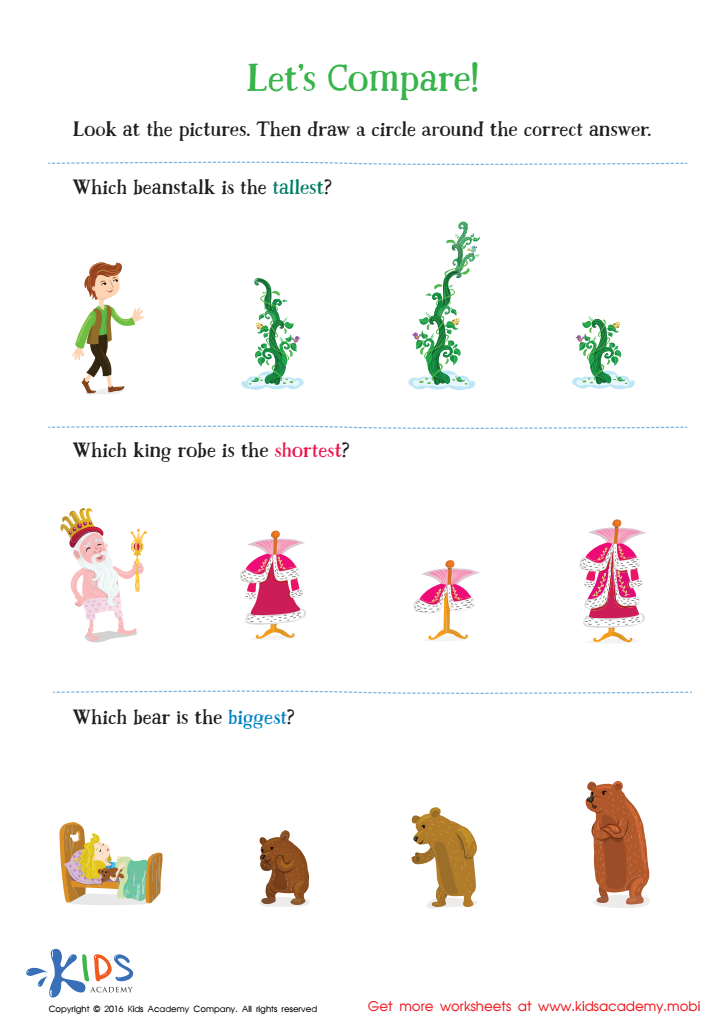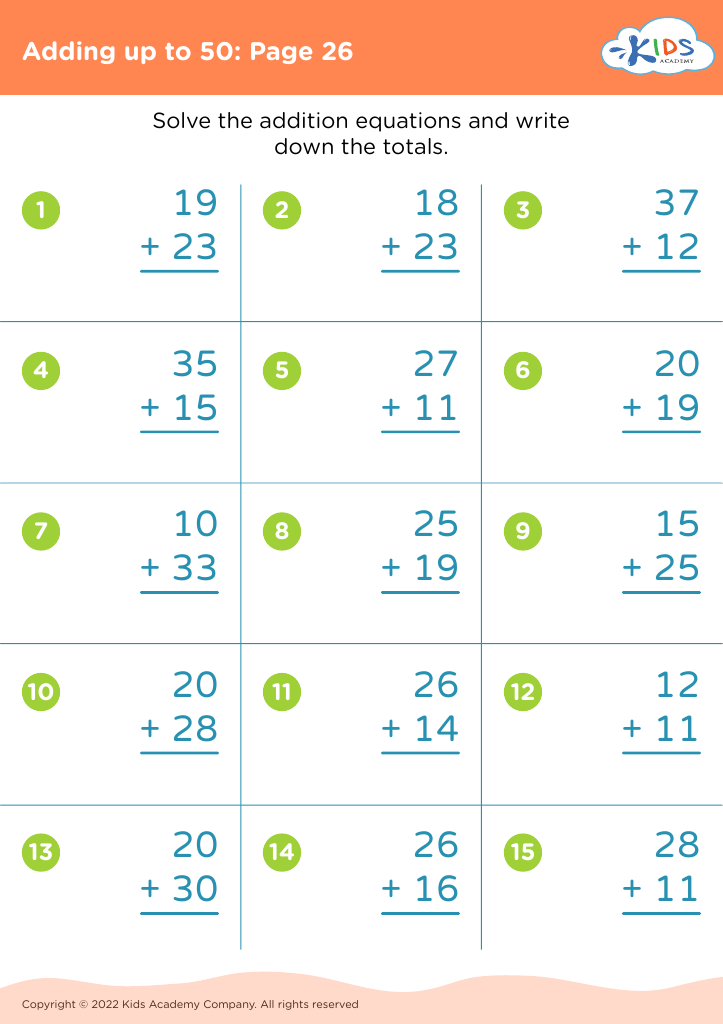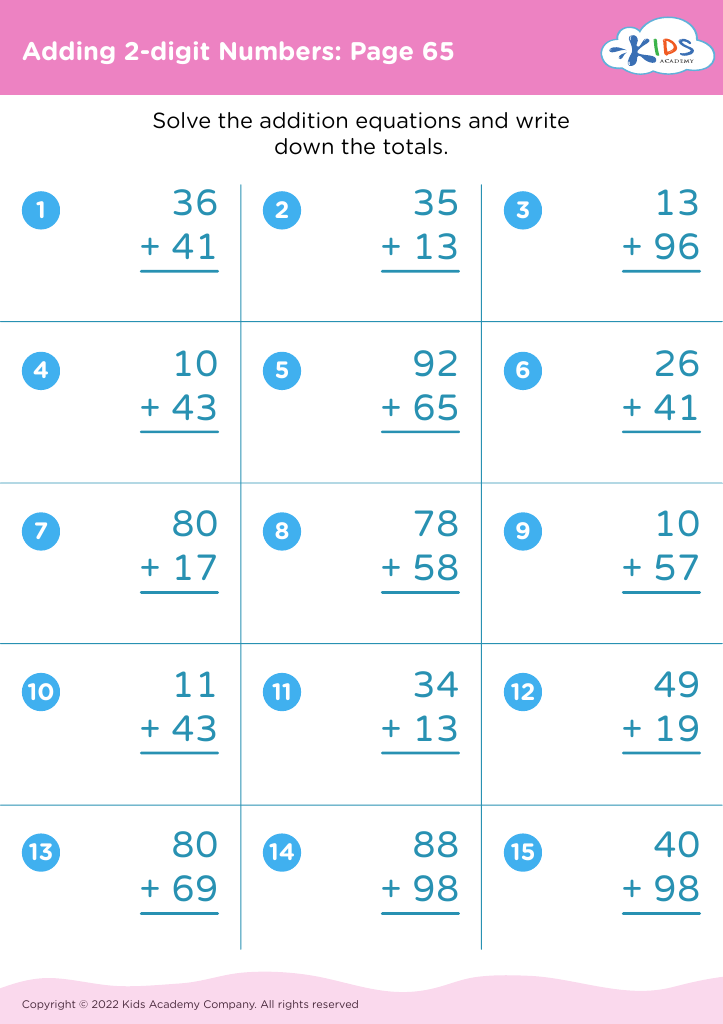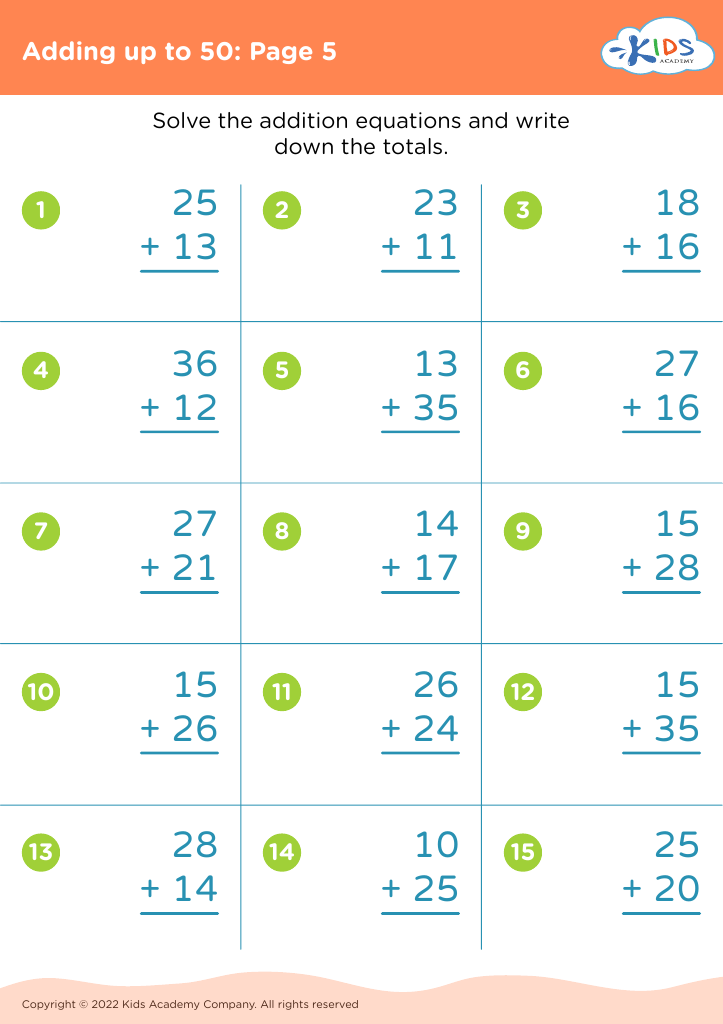Understanding adjectives Math Worksheets for Ages 5-7
6 filtered results
-
From - To
Discover our engaging "Understanding Adjectives Math Worksheets" tailored for children aged 5 to 7! These worksheets blend math and language skills, helping young learners grasp the concept of adjectives while practicing essential math operations. Each activity promotes critical thinking, enabling students to identify and use adjectives in various contexts. Designed with colorful visuals and interactive exercises, our worksheets make learning fun and effective. Teachers and parents can easily download and print these resources, ensuring exciting educational experiences at home or in the classroom. Empower your child's learning journey by exploring the wonderful world of adjectives through math today!


Fairy Tale Worksheet: Let's Compare
Understanding adjectives in math is essential for young learners, particularly for ages 5 to 7, as it lays the foundation for essential cognitive skills. While primarily a language concept, adjectives enhance a child's ability to communicate mathematical ideas clearly and effectively. For example, recognizing descriptors like “big” or “small” helps children categorize objects, compare quantities, and develop their problem-solving skills.
At this stage, children are exploring the world around them, and incorporating adjectives into math problems enriches their learning experience. Teachers and parents can use adjectives to create engaging, relatable math problems that make abstract concepts more tangible. For instance, instead of simply discussing shapes, asking children to identify “tall triangles” or “wide rectangles” encourages analytical thinking and boosts vocabulary.
Moreover, understanding adjectives fosters critical thinking and comprehension, which are crucial in navigating more complex math topics in the future. By emphasizing these connections between language and math, adults can create a more integrated learning experience that prepares children for richer interactions with both subjects. Ultimately, promoting a deep understanding of adjectives contributes to a well-rounded education, helping children become articulate thinkers and effective problem solvers.




 Assign to My Students
Assign to My Students





















